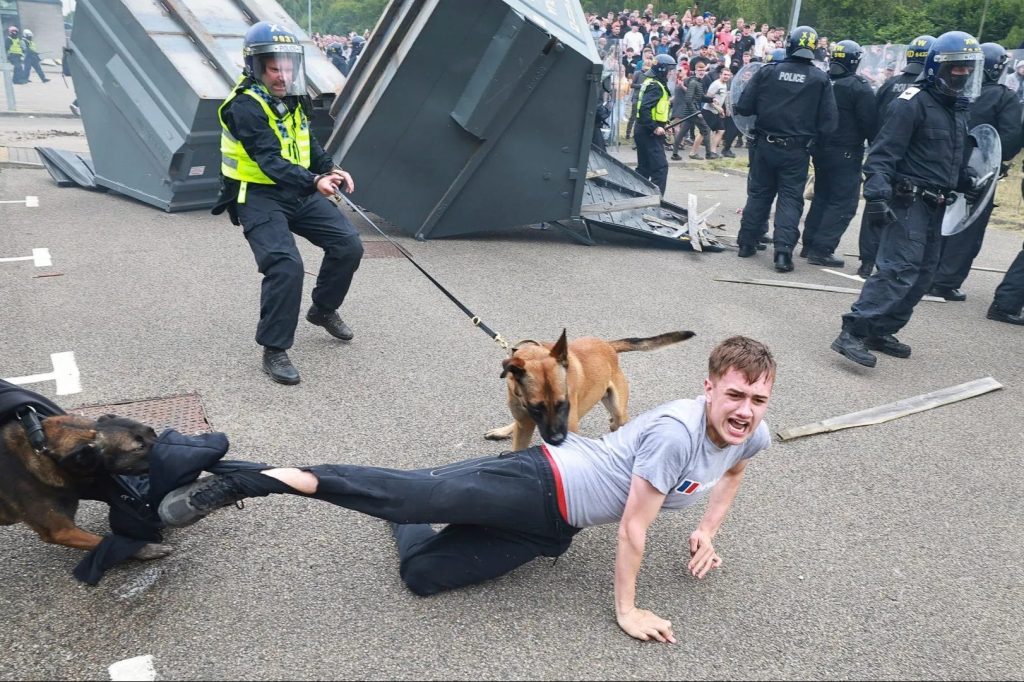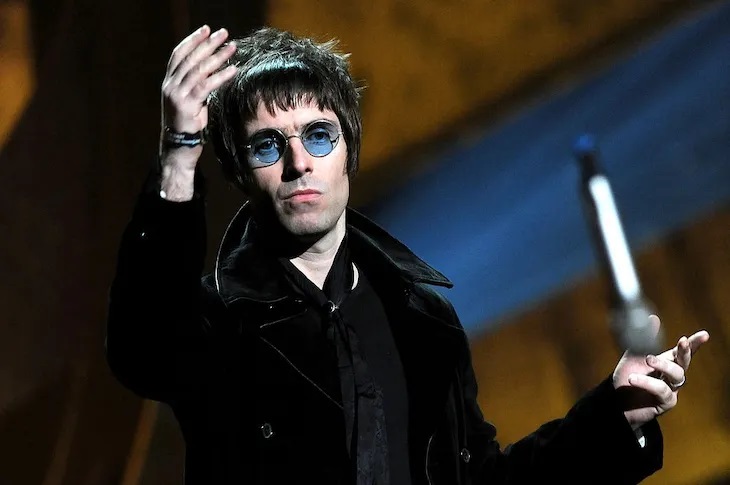We’re told the UK’s riots are about immigration, racism, angry Islam, elite blindness and identity politics — and, to a point, that’s all true. But the disorder in British cities is also about the internet — and online videos in particular. People just can’t stop sharing “riot porn,” whether it be savage beatings, vicious clashes between rioters and the police, or buildings and cars being set on fire. Violence, like sex, goes viral because it is so addictive to watch.
Unlike with pornography, however, there’ no stigma attached to the circulation of such footage, especially if the person on the receiving end of the brutality seems to be a villain. It’s schadenfreude on steroids. Last week, a clip of a skinhead getting a brick in the testicles after he’d charged at police officers garnered millions of views. So did a video of a police dog tearing into another man’s bottom.
The gratuitous dissemination of this ugly imagery is often dressed up as political commentary. Left-wing pundits post footage of thugs setting fire to a migrant hotel and blame the Conservatives for having “demonized” foreigners. Right-wing pundits such as Tommy Robinson make barbed comments about “two-tier” policing as they post a video of a frightening mob shouting: “Allahu Akbar!”
No doubt these posters believe what they say. But everybody knows that the nasty video, not the comment, is what really does well online. Social media companies worsen the spread of riot porn by algorithmically promoting footage to boost “engagement.” And TikTok, X and Facebook do this because we, their consumers, can’t help ourselves.
That in turn creates a market for performative nihilism. Hooligans play to the cameras in order to create a viral scene. On Monday, hooded thugs shouting “Free Palestine” intimidated a Sky News reporter in Birmingham. The clip went everywhere. On X (where else?), the Labour Member of Parliament Jess Phillips insisted, absurdly, that “these people came to this location because it has been spread that racists were coming to attack them.” She made her point by “quote-tweeting” Richard Tice, the Reform deputy leader, who had posted the clip. “Don’t share it, Mr. Tice!” she said. In doing so, of course, she shared the video, too.
British prime minister Keir Starmer has been eager to say that criminal law should be “applied online as well as off,” and Labour is now expected to push for a further clampdown on internet “hate.” Starmer’s office has denounced Elon Musk, the world’s richest man and CEO of Twitter, for telling his 193 million online followers that “civil war is inevitable.” A Downing Street spokesman said there is “no justification for comments like that” and “anyone who is whipping up violence online will face the full force of the law.”
It’s easy to see why governments resent tech titans and their awesome power over the global conversation. But Starmer and his government seem to be deliberately conflating different digital problems in order to do what they really want, which is to silence dissent.
Yes, instant communication means that angry mobs can assemble at terrifying speeds. Yes, the lightning-quick spread of misinformation is a serious issue. False reports that the man who killed three girls in Southport was a Syrian refugee led to the first violent anti-immigration protests. Nick Lowles, the chief executive of HopeNotHate, apologize after he fueled tensions by spreading unfounded claims that racists threw acid in a Muslim woman’s face.
Tech companies are rightly criticized for allowing such poison on their platforms. But the wickedness of social media is social not political and that’s not something which governments are well-placed to address. The fact that so many of us feel that sharing violent videos can be a virtuous act suggests that morality has been sacrificed for self-promotion. The real evil is in ourselves, lol.
This article was originally published in The Spectator’s UK magazine. Subscribe to the World edition here.


























Leave a Reply